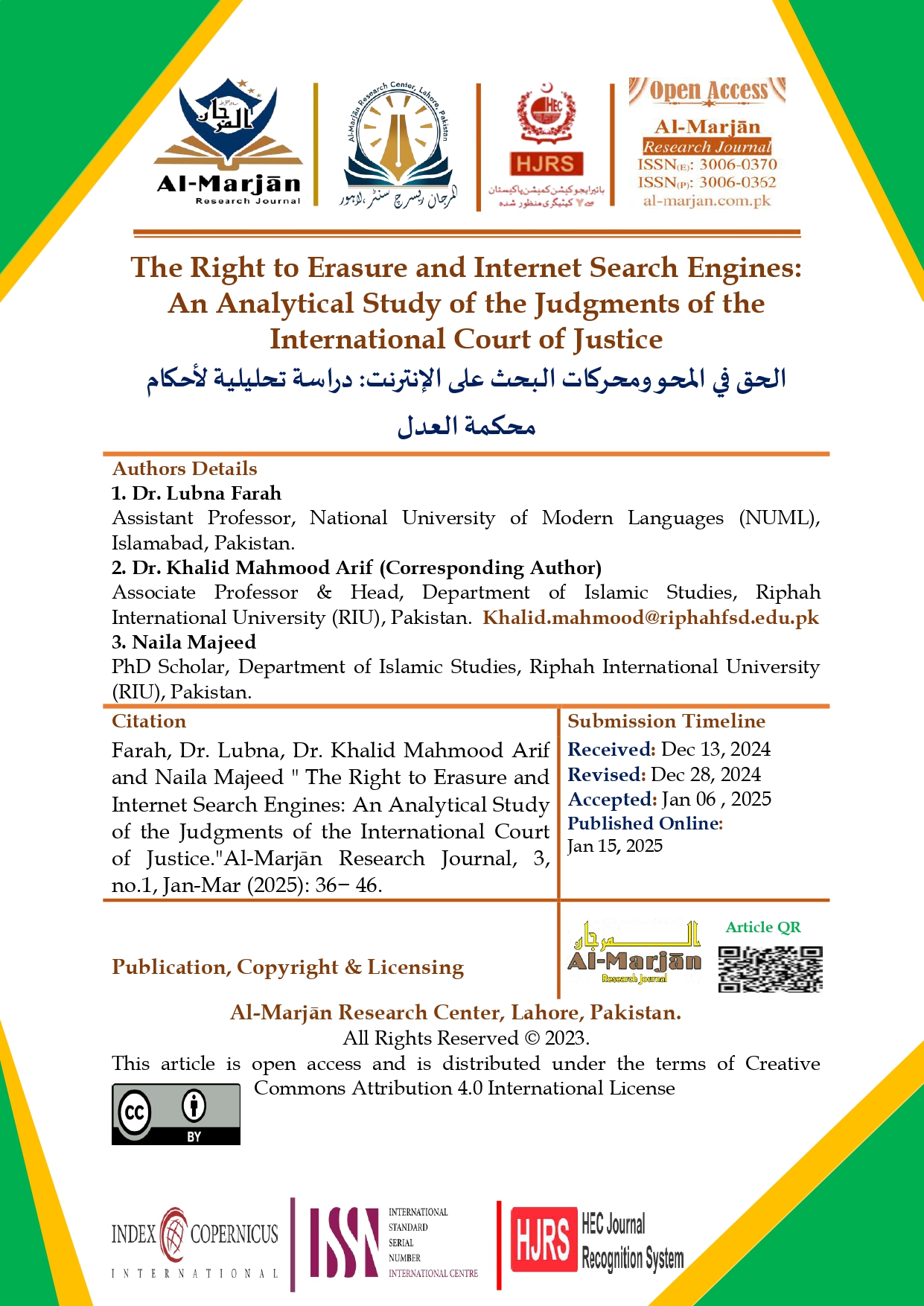The Right to Erasure and Internet Search Engines: An Analytical Study of the Judgments of the International Court of Justice
الحق في المحو ومحركات البحث على الإنترنت: دراسة تحليلية لأحكام محكمة العدل
DOI:
https://doi.org/10.1234/qxmtk287Keywords:
data processor, search engines, liability of the data controller, data subject rights, legal interpretation.Abstract
The right to erasure is a fundamental right of the data subject, defined as the natural person whose personal data is processed electronically. This right, outlined in Article 2 of Chapter 2 of Law No. 151 of 2020 (the Egyptian Personal Data Protection Law), mirrors the provisions of Article 17 of the European GDPR. It enables individuals to request the deletion of their data from processing entities. This paper explores key questions regarding the scope, conditions, and limitations of this right, as well as the protective measures available when a data processing entity, such as a search engine utilizing AI, refuses to comply with a request for erasure. A central research question is: How do the implementation and enforcement of the right to erasure, as outlined in both the Egyptian Personal Data Protection Law and the GDPR, impact the practices of search engines that use AI in data storage and retrieval? The Court of Justice of the European Union has addressed these issues in various rulings, reinforcing the application of this right. Given the nascent nature of Egyptian law `and the lack of judicial rulings in this area, examining EU court decisions provides both a doctrinal framework and practical guidance for potential future claims in Egyptian courts.






































